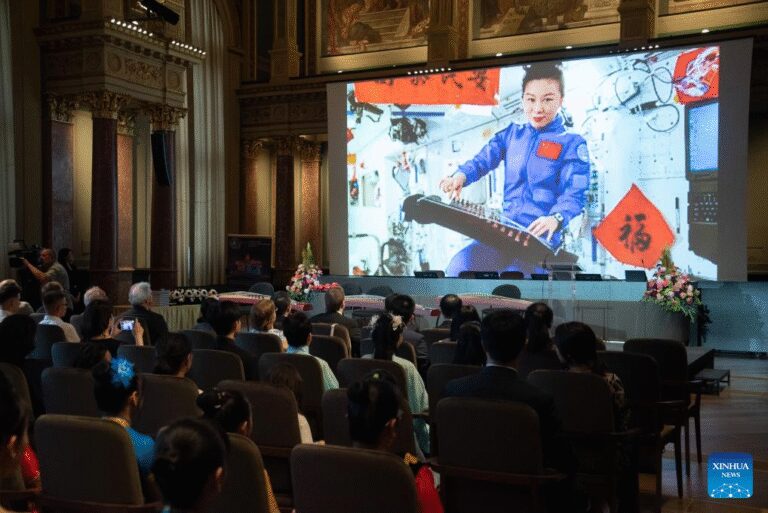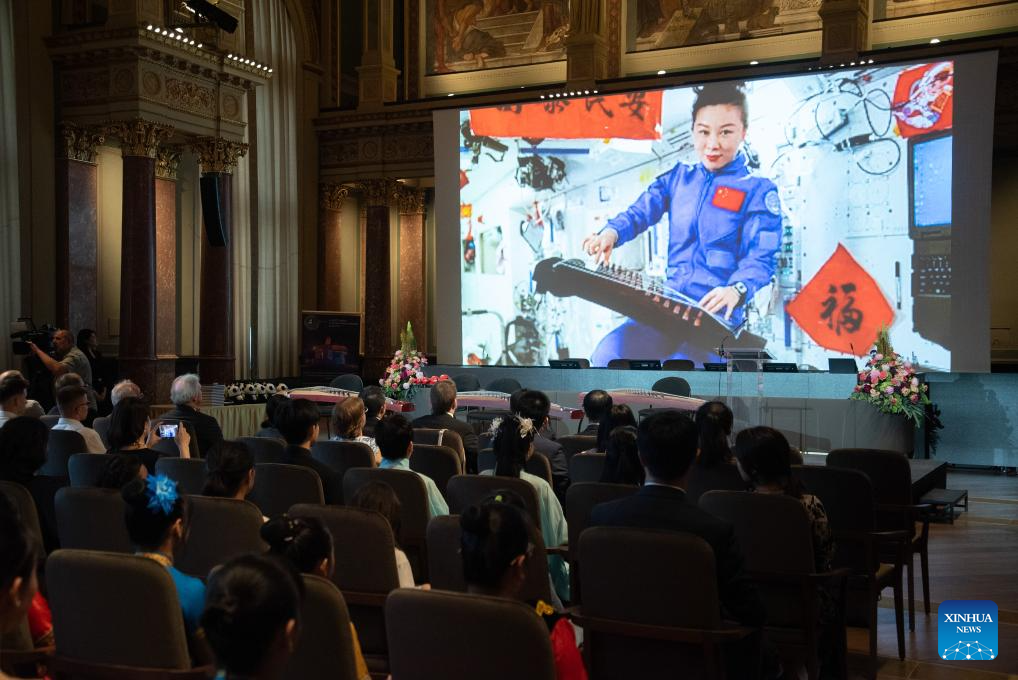
People attend a special space science Q&A session with Chinese astronauts aboard the Tiangong space station in Budapest, Hungary, on June 6, 2025. More than 300 students, scientists, and government officials gathered Friday at the Hungarian Academy of Sciences for a special space science Q&A session with Chinese astronauts aboard the Tiangong space station. (Photo by Tamas Szigeti/Xinhua)
BUDAPEST, June 6 (Xinhua) — More than 300 students, scientists, and government officials gathered Friday at the Hungarian Academy of Sciences for a special space science Q&A session with Chinese astronauts aboard the Tiangong space station.
Dubbed the “Tiangong Classroom,” the event was co-hosted by the China Manned Space Agency, the Chinese Embassy in Hungary, and the Hungarian Academy of Sciences. It aimed to deepen growing cooperation between China and Hungary in the fields of aerospace, education, and innovation.
During the session, Shenzhou-20 crew members Chen Dong, Chen Zhongrui, and Wang Jie responded to questions submitted in advance by Hungarian students. In a pre-recorded video, the astronauts also demonstrated zero-gravity science experiments, captivating the audience with examples from space.
The event attracted questions from students representing over 100 Hungarian schools, touching on a wide range of space science topics. Many Hungarian students were thrilled to see their questions answered directly by astronauts in space.
Tamas Pinter Keresztes, a 16-year-old from Zrinyi Ilona High School in Nyiregyhaza, is the founder and team leader of Hungary’s first high school rocket development group, Pannon Space Technologies. He shared his excitement with Xinhua: “I asked what strength-training equipment astronauts use aboard the station, and I also submitted an experiment idea, which got selected. This kind of cooperation between Hungary and China for promoting science makes me really happy.”
Sara Lovati, 15, from ELTE Trefort Agoston High School in Budapest, asked about how microgravity affects the spinal column. She was curious about the astronauts’ real feelings after reading an article about how astronauts grow taller in space. “I love astronomy,” she said, adding that she hopes to study astrophysics in the future.
From Szekesfehervar, 15-year-old Bence Kovacs of Szechenyi Istvan Technical School focused on the circadian cycle in space. His question is how the absence of a natural day-night rhythm affects the human body. “I’ve been following China’s space program online,” he said. “I wish them to have success in their scientific experiments, and of course, a safe return.”
The student submissions were reviewed anonymously by a panel of scientists, including Adam Boldog, a researcher at the Svabhegy Observatory and one of the event’s scientific coordinators.
“We evaluated how relevant the questions were to microgravity, how original they were, and whether they reflected a clear scientific mindset,” he explained, adding that it was hard to select dozens from hundreds of high-quality questions.
Ferenc Hudecz, vice president of the Hungarian Academy of Sciences, highlighted the significance of the event. “It highlights China’s emergence as a global leader in space research, and its serious commitment to inspiring younger generations and encouraging their curiosity and openness toward the world,” he said.
Chinese Ambassador to Hungary Gong Tao hailed the event as a new chapter in China-Hungary aerospace cooperation. “Only through open cooperation can we climb higher and more dangerous peaks of science and technology,” he said.
The three-member crew aboard the Tiangong space station was launched into orbit on April 24 for a six-month mission. ■
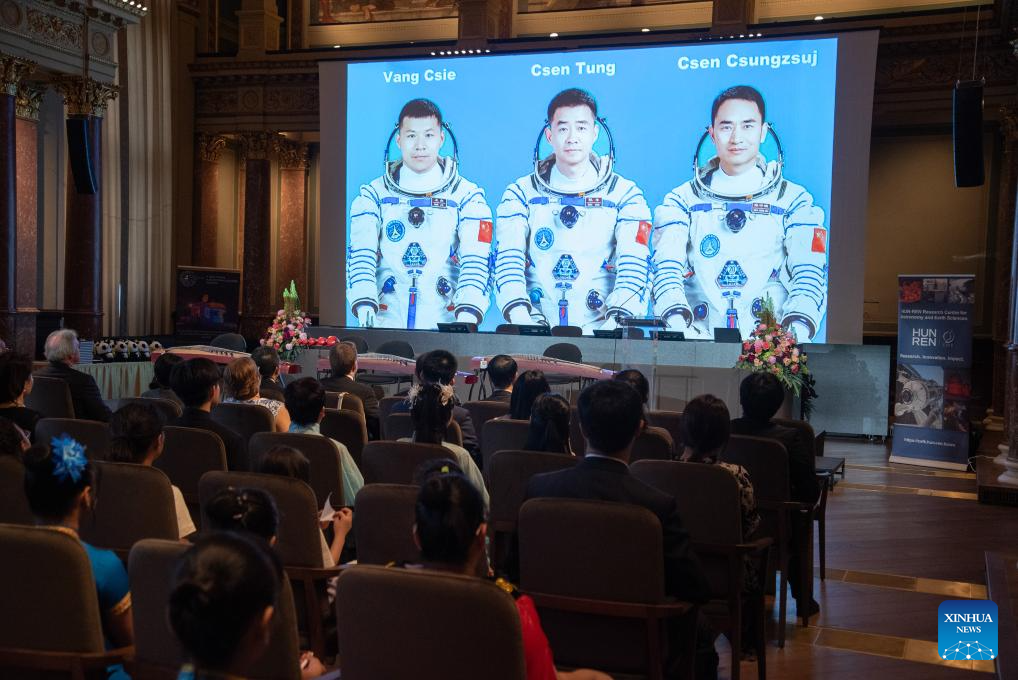
People attend a special space science Q&A session with Chinese astronauts aboard the Tiangong space station in Budapest, Hungary, on June 6, 2025. More than 300 students, scientists, and government officials gathered Friday at the Hungarian Academy of Sciences for a special space science Q&A session with Chinese astronauts aboard the Tiangong space station. (Photo by Tamas Szigeti/Xinhua)
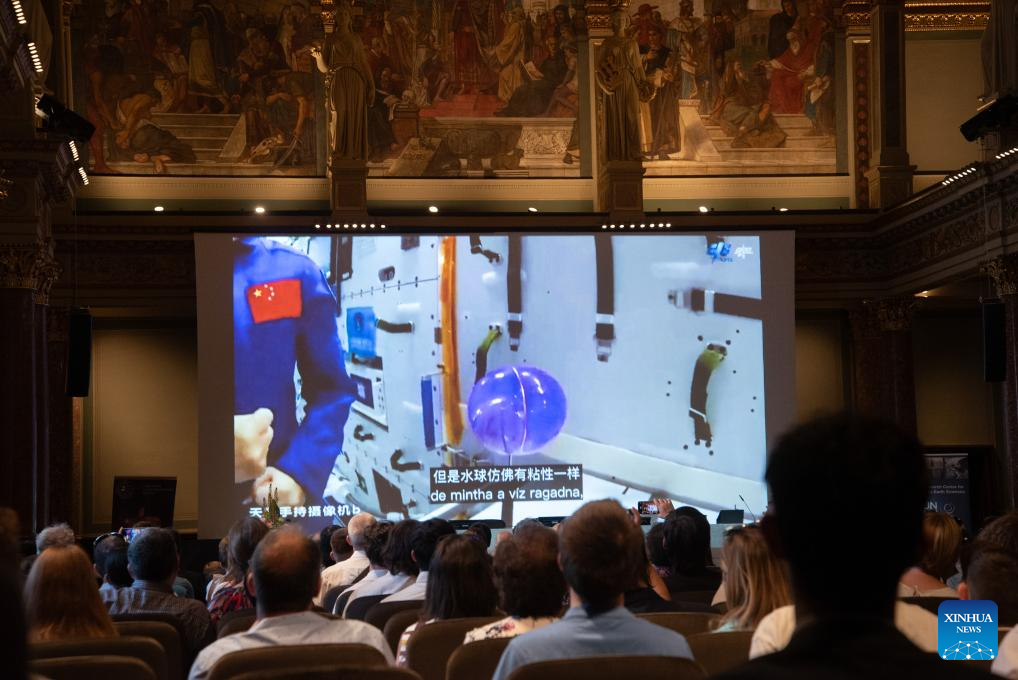
People attend a special space science Q&A session with Chinese astronauts aboard the Tiangong space station in Budapest, Hungary, on June 6, 2025. More than 300 students, scientists, and government officials gathered Friday at the Hungarian Academy of Sciences for a special space science Q&A session with Chinese astronauts aboard the Tiangong space station. (Photo by Tamas Szigeti/Xinhua)
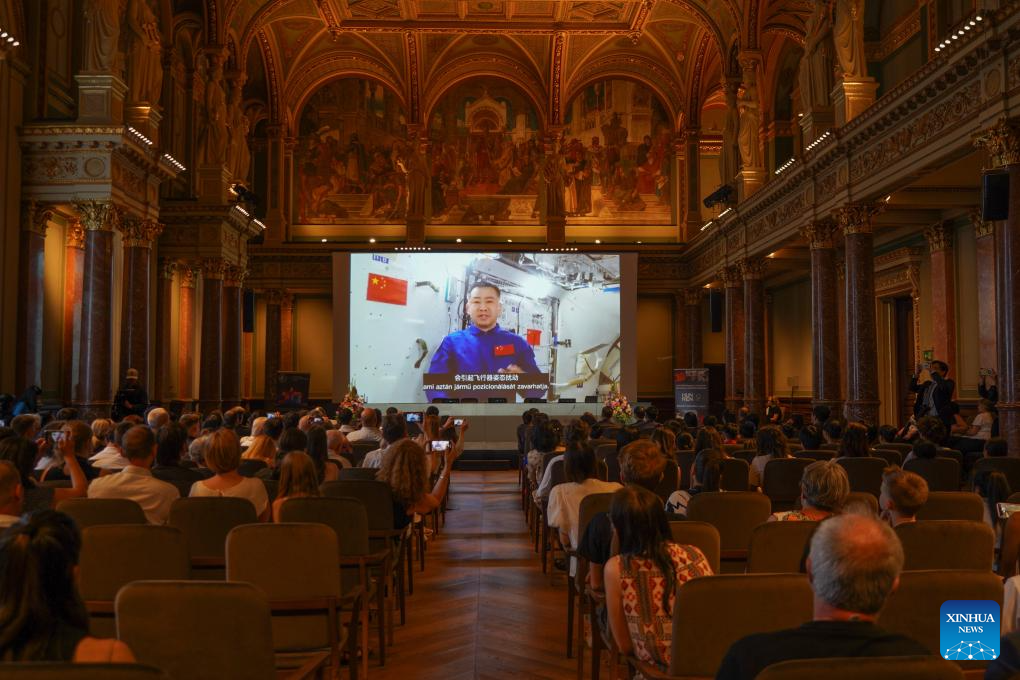
People attend a special space science Q&A session with Chinese astronauts aboard the Tiangong space station in Budapest, Hungary, on June 6, 2025. More than 300 students, scientists, and government officials gathered Friday at the Hungarian Academy of Sciences for a special space science Q&A session with Chinese astronauts aboard the Tiangong space station. (Xinhua/Chen Hao)

People attend a special space science Q&A session with Chinese astronauts aboard the Tiangong space station in Budapest, Hungary, on June 6, 2025. More than 300 students, scientists, and government officials gathered Friday at the Hungarian Academy of Sciences for a special space science Q&A session with Chinese astronauts aboard the Tiangong space station. (Xinhua/Chen Hao)
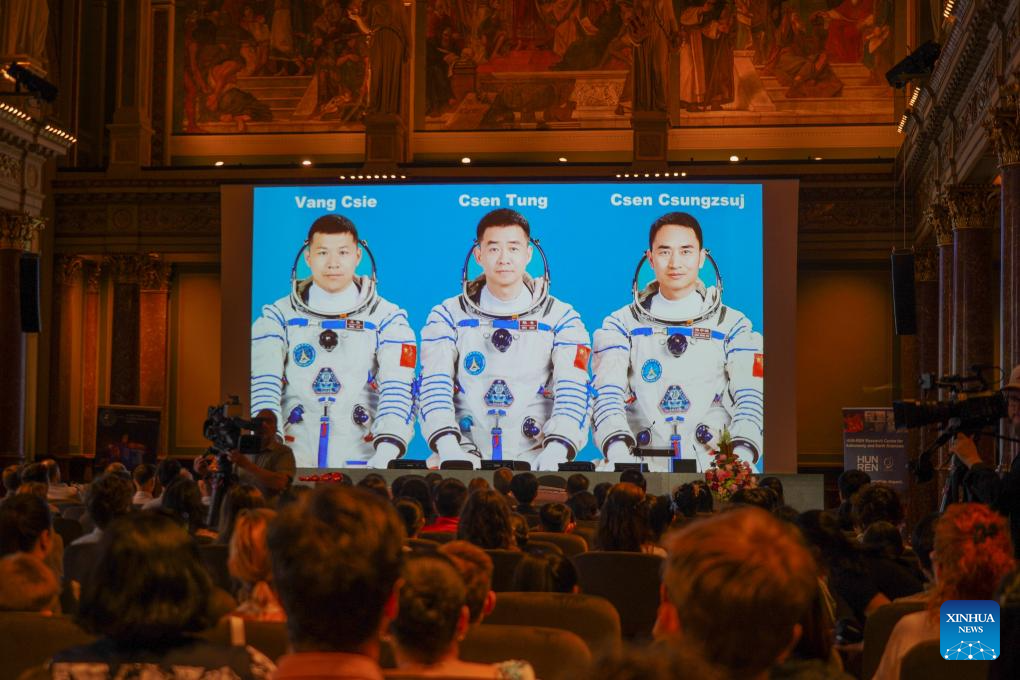
People attend a special space science Q&A session with Chinese astronauts aboard the Tiangong space station in Budapest, Hungary, on June 6, 2025. More than 300 students, scientists, and government officials gathered Friday at the Hungarian Academy of Sciences for a special space science Q&A session with Chinese astronauts aboard the Tiangong space station. (Xinhua/Chen Hao)

